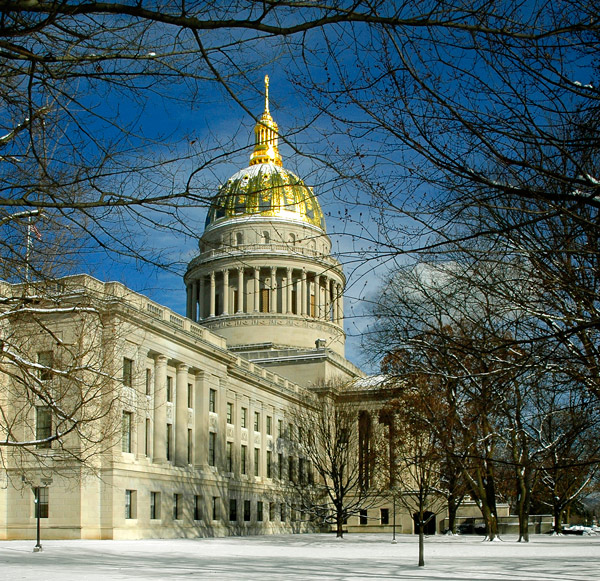As we head into the final two weeks here’s a look at various election and court related bills that are still in play and their status.
In the Senate, one of the bright spots of the session is being held up. SB 488, which would restore voting rights to thousands of West Virginians on probation and parole, was to be voted on last week but was put into the Senate Rules Committee on 2nd Reading. The bill has tremendous bi-partisan support in the Senate, and there’s still time to get it passed ahead of crossover day on Wednesday. Call Senate President Craig Blair at (304) 357-7801 and ask that SB 488 be put back on the Senate calendar for a vote!
In the House of Delegates, the Judiciary Committee advanced four election related bills this past week, including these two bad ideas:
HB 4419 – (3rd Reading 2/28/22) – This bill would allow more money into our elections, by raising the amount of money candidate and party caucus committees can contribute to state party and affiliated executive committees. A bill that passed the Legislature in 2019 set this limit on these contributions at $10,000 per calendar year. (Prior to that the limit had been $1,000.) Under the introduced bill, candidate committees and caucus committees could make contributions to party committees “without limitation” however, an amendment adopted on the House floor limits these donations to a mere $75,000.
In addition to raising the limits on what candidates can contribute to party committees, HB 4419 also removes the cap on coordinated expenditures by party committees, allowing them to spend unlimited amounts on candidates in the general elections in coordination with the candidates committee. (Prior to 2019, these types of coordinated expenditures were prohibited. A bill passed that year relaxed restrictions on coordinated activity, allowing coordinated expenditures of up to $5,000 per candidate.)
As reported by the Charleston Gazette-Mail, supporters say HB 4419 will “increase the transparency of money flowing through West Virginia politics,” while opponents say it amounts to “political money laundering.”
HB 4293 – (1st Reading 2/28/22) – According to the bill’s sponsors, the purpose of this bill is to “prohibit the delivery of unsolicited absentee ballot applications to any person who has not specifically requested one.” The introduced bill would have made it a felony “to mail or deliver an application for an absentee ballot to any voter except when specifically requested by that voter,” with those found guilty being subject to a $5,000 fine and up to a year in jail — for providing someone with a copy of an absentee ballot application, a public document currently available on the Secretary of State’s website. The bill takes aim at the few county clerks who made the decision to mail applications to all the registered voters in their counties ahead of the 2020 general election, after the Governor and the Secretary of State’s Office refused to mail the applications to all registered voters as they did for the 2020 primary election; but also applies to individuals who are not election officials.
A sub-committee made the bill less punitive by reducing the “unsolicited delivery” of applications to a misdemeanor and lowering the fine to $500 and/or six months in jail. However, HB 4293 is still a preposterously bad and offensive bill that targets and punishes election officials and others for simply helping people exercise their right to vote.
Like HB 4311, which would increase the penalties for illegal voting in an election, HB 4293 is yet another distraction from the party that continues to fuel lies and conspiracy theories that the 2020 election was stolen by massive voter fraud. HB 4311 passed the House three weeks ago, and is currently pending in the Senate Judiciary Committee.
Also pending in the Senate Judiciary Committee is HB 4785, which would strip West Virginians of their ability to have a say in who fills vacancies on the State Supreme Court. We have a process in place for filling judicial vacancies and that process involves West Virginia voters. HB 4785 would eliminate their role and an important check on the governor’s appointment power.
The stakes for regular West Virginians are far too high to risk this kind of judicial power grab. Our state Supreme Court frequently has the final say on critical issues like education funding, access to healthcare, worker protections, neighborhood safety, and the quality of our air and water. We deserve to have a say-so on our courts.
Tell members of the Senate Judiciary Committee and your Senators: Reject HB 4785!
Write a letter to the editor on HB 4785 using this toolkit.
In addition to these bills, a few other election bills have already completed legislation. The most noteworthy of these are:
SB 191, would allow poll workers to work half-day shifts on election day. The bill has been signed by Governor Justice and will be in effect for the May primary election.
HB 4312, would allow “a qualified first responder called away on duty to respond to an emergency outside the voter’s county of residence, which prevents the voter from participating in the election by in-person and mail-in absentee voting” to vote an electronic absentee ballot. Under current law, this option is only available to military and overseas voters, and voters with physical disabilities. You may recall that Delegates John Doyle (D-Jefferson) and Evan Hansen (D-Monongalia) tried to amend the bill to make absentee voting by mail available to all West Virginia voters based on the success and historic turn out of the 2020 election. The amendment’s rejection was a missed opportunity to expand ballot access for all eligible voters.

